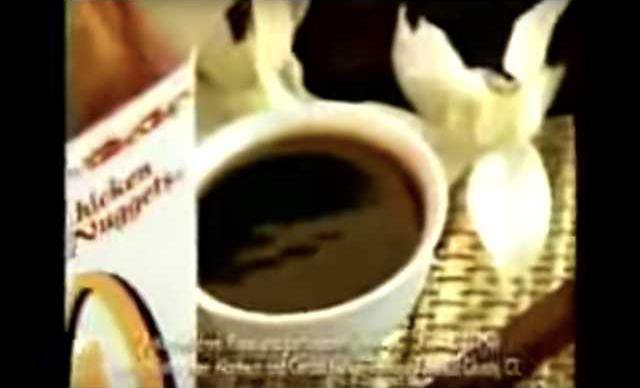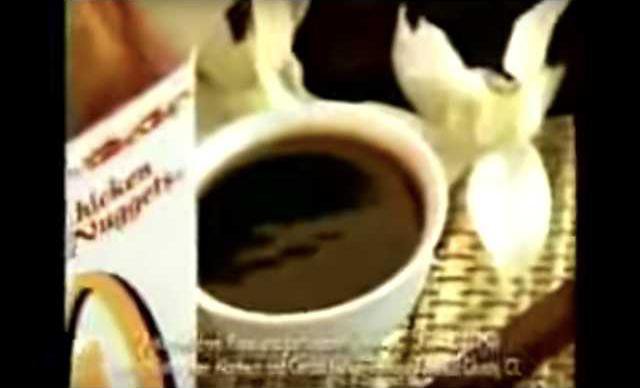McDonalds is about to bring back an old, cult favorite.
The company announced on Thursday that every McDonalds location will serve its Szechuan nugget sauce on Monday.
The company will release 20 million sauce packets across the country in hopes that there wont be any shortages.
McDonalds said the sauce will be in stock until it runs out.
The fast-food chain also released a new serial-style podcast called The Sauce, which details the craze around the famous McDonalds dipping sauce.
The sauce originally debuted in the 1990s as a limited-time-only menu item. It was paired with the debut of Disneys Mulan
Since its debut, the sauce has taken on something of a cult following after a character from the adult comedy show Rick and Morty begged McDonalds to release the sauce again, according to Eater. Thousands of people signed a petition for McDonalds to bring the sauce back. In fact, the Rick and Morty team started a Change.org campaign to bring back the sauce. It gathered more than 23,000 signatures. Someone even placed a bid of $14,700 on eBay for pair of the sauce packets.
In response, McDonalds released four jugs of the sauce in the summer of 2017, according to Business Insider. Rick and Morty fans bid thousands of dollars for the jugs.
Noticing the demand, McDonalds then released a limited amount of sauce to select locations. Fans of the show flooded the stores. However, customers spoke out against McDonalds when they discovered only about two dozens sauce packets and posters.
According to Business Insider, police officers were called to multiple locations as customers screamed, jumped on counters, and stuffed themselves into overcrowded restaurants.
McDonalds later issued an apology for the incidents.
Now, McDonalds hopes its new release will make amends for what happened.
To fully make amends, we felt it was important to not only bring back much more sauce this time, but to also admit our mistakes, answer questions and give fans access to the story behind the story, according to the company.
The company announced on Thursday that every McDonalds location will serve its Szechuan nugget sauce on Monday.
The company will release 20 million sauce packets across the country in hopes that there wont be any shortages.
McDonalds said the sauce will be in stock until it runs out.
The fast-food chain also released a new serial-style podcast called The Sauce, which details the craze around the famous McDonalds dipping sauce.
The sauce originally debuted in the 1990s as a limited-time-only menu item. It was paired with the debut of Disneys Mulan
Since its debut, the sauce has taken on something of a cult following after a character from the adult comedy show Rick and Morty begged McDonalds to release the sauce again, according to Eater. Thousands of people signed a petition for McDonalds to bring the sauce back. In fact, the Rick and Morty team started a Change.org campaign to bring back the sauce. It gathered more than 23,000 signatures. Someone even placed a bid of $14,700 on eBay for pair of the sauce packets.
In response, McDonalds released four jugs of the sauce in the summer of 2017, according to Business Insider. Rick and Morty fans bid thousands of dollars for the jugs.
Noticing the demand, McDonalds then released a limited amount of sauce to select locations. Fans of the show flooded the stores. However, customers spoke out against McDonalds when they discovered only about two dozens sauce packets and posters.
According to Business Insider, police officers were called to multiple locations as customers screamed, jumped on counters, and stuffed themselves into overcrowded restaurants.
McDonalds later issued an apology for the incidents.
Now, McDonalds hopes its new release will make amends for what happened.
To fully make amends, we felt it was important to not only bring back much more sauce this time, but to also admit our mistakes, answer questions and give fans access to the story behind the story, according to the company.








